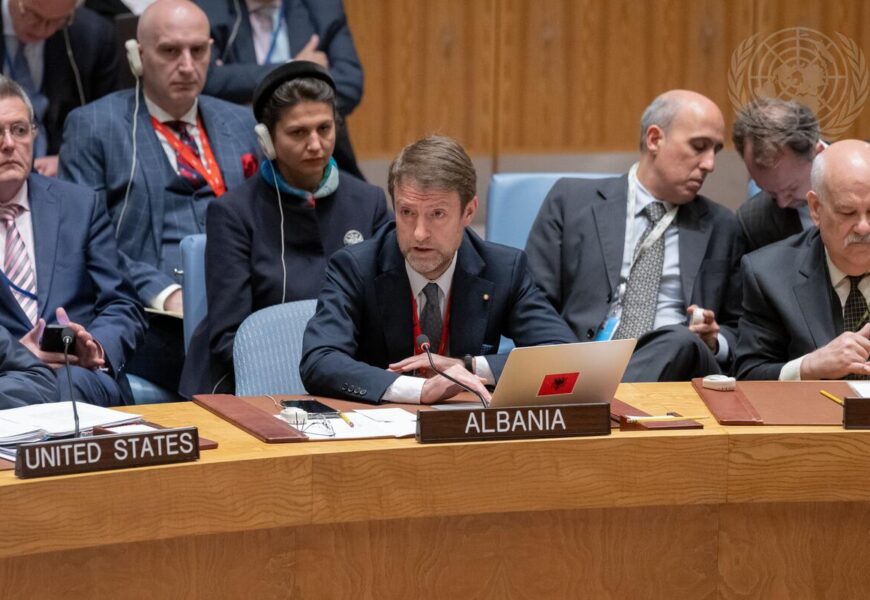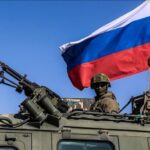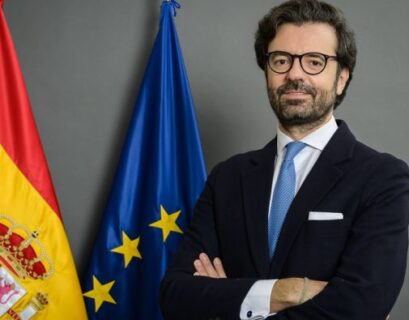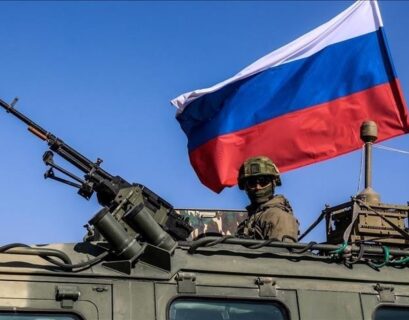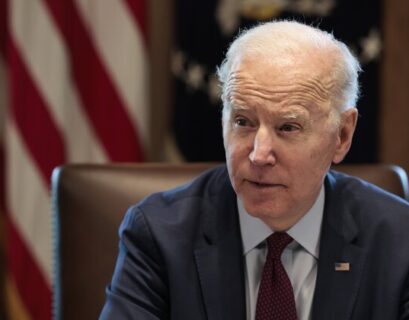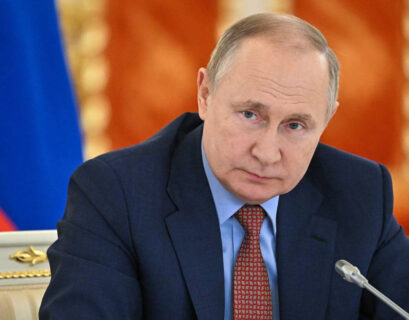By Alba Cela
When Albania joined the United Nations in 1955, the communist dictatorship had already consolidated and Enver Hoxha’s hands were already bloody with the political murder of his rivals and his imagined potential enemies. The foundations of a policy of extreme isolation were being laid, an isolation that reached an absurd peak around the 80s. Today’s North Korea even seems a bit more tuned in with the rest of the world that Albania was during the entire Cold War period.
Fast forward 65 years later, in a meeting of the General Assembly in the summer of last year Albania was chosen with an overwhelming majority as a non-permanent member of the UN security council, the most important decision making body when it comes to matters of security and world order. The spot that was to be filled win with a country form the Southeastern European region will be filled by our country until the end of 2023.
The symbolic of this important development should not be lost on anyone: this truly represents a unique opportunity for Albania to leave a small but significant mark in the international relation arena. As such it is simultaneously an enormous challenge. It is one in a generation occurrence.
Albania’s previous opportunity to do the same through the chairmanship of OSCE in 2020 was largely dismantled by the Covid-19 pandemics.
The only event of a similar magnitude and impact was accession into NATO, which was even more symbolic given that the Alliance was the perceived devil in the eyes of the world behind the iron curtain.
Albania has a chance now to escape once and for all the iron grip of long years of isolation and what they do to nation’s psyche with a little help from propaganda, how they ironically makes people feel like they are at the center of the world. This opportunity of being seen, of being heard, of contributing to this unique institution is at the same time quite importantly an opportunity to be humble, to recognize one’s potential within the realistic limitations.
Often times the Albanian foreign policy rhetoric has shown the flaws of this heritage of isolation, it has tried to present Albania as a giant in the international relations arena. The non-permanent member of the UNSC cannot and should not be more of the same.
Therefore this opportunity is a good time to let that go. When one looks at the agenda, Albania priorities in this period will include: Women rights and the role of women in peace and security; International law and multilateralism; Countering CVE; Climate change and security; Cooperation for global health. These areas of intervention present at the same time fields in which Albania needs to increase its own capacities alongside general invest in an overall better diplomacy.
Albania has one amazing card under the sleeve to showcase in these two years, its precious tradition of religious harmony and coexistence and how that can be a solid dimension and pillar of peace.
This engagement can also be a chance to involve the best experts and try to keep them even afterwards, to learn about topics which usually are under looked and understudied in the western Balkans
That said, Albania’s timing is difficult. The deterioration of the situation in Ukraine and the imminent if not occurring Russian invasion is a formidable challenge to the entire security infrastructure of the West. The constellation of western countries with which Albania has wisely and consistently aligned itself is scrambling to find the best response, between economic sanctions, empowering Ukraine in the military front and strengthening the coordination between the constellations of NATO partners.
This situation of war has once again revived questions and skepticism over the real clout of the UN and it is a well-known fact that many experts have highlighted the fact that it needs to reform with an aim to address the current emerging challenges. Officially Albania supports the reform of the United Nations and its main bodies.
However institutional change is hard to come by on a time of such extreme upheaval. Hence for these two years the best strategy is to make use of the existing platforms and events to advocate for issues which are pertinent to Albania and can help its way forward.
Finally on a last note Albania is in a position to raise and advocate for issues which are common to the entire region of the Western Balkans. This would be an added value to its membership and an excellent way to show ownership and even stewardship of regional cooperation.


